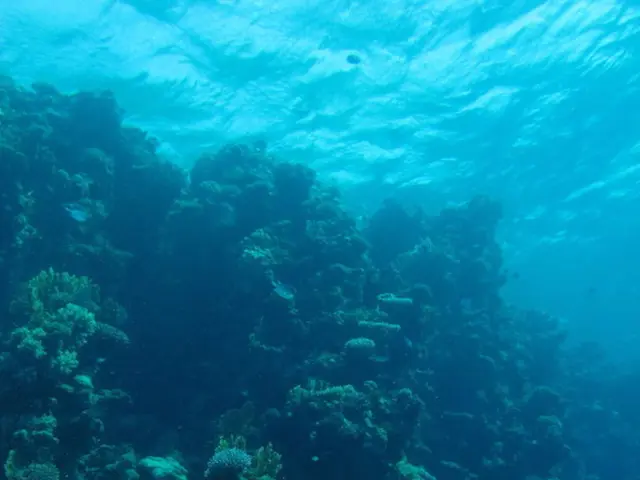World Environment Day 2025: Let's Beat Plastic Pollution Together!
Environmental Catastrophe Unfolds on World Environment Day 2025: The Alarming Consequences of Plastic Pollution on Earth
Snatch the spotlight on June 5, the World Environment Day, and make a stand for the planet! Ever since its inaugural celebration in 1973, this day serves as a global reminder to prioritize our environment and take meaningful action. This special day commemorates the 1972 UN Conference on the Human Environment. People from around the globe band together, each year, under a common theme to champion a healthier planet through initiatives like tree plantings, clean-up campaigns, and climate action challenges.
This year, buckle up, because the Republic of Korea will be hosting World Environment Day in 2025, zeroing in on the global mission to stamp out plastic pollution. It's high-time we tackle the plastic pollution menace, which is a crucial step towards achieving Sustainable Development Goals like climate action, sustainable production and consumption, protection of seas and oceans, and preserving ecosystems and biodiversity.
Here's The Lowdown on Plastic Pollution
Fact: Every stinking day, the equivalent of 2,000 garbage trucks pile their filth into the world's oceans, rivers, and lakes [1]. That's some serious trash!
Plastic pollution poses a global threat. Year on year, 19-23 million tonnes of plastic waste seeps into aquatic ecosystems, littering lakes, rivers, and seas.
Plastic pollution isn't a solitary issue; it messes with habitats and natural processes, rendering ecosystems less adaptable to climate change. The fallout directly impacts millions of folks' livelihoods, food production capabilities, and overall wellbeing.
Fun fact: The United Nations Environment Programme (UNEP) shows us that plastic pollution isn't a self-contained problem. You gotta consider the environmental, social, economic, and health risks of plastics alongside other environmental stressors like climate change, ecosystem degradation, and resource use to get a holistic view [1].
Record Breakers: Key Statistics and Challenges
- Plastic Production: Around 400 million tons of plastic are churned out annually, fueling carbon emissions and contributing to the climate crisis [2].
- Waste and Pollution: Approximately 19 million tons of plastic waste spill into the environment each year, with 11 million tons finding its way into water ecosystems [1][2].
- Social and Environmental Costs: The annual expense attached to plastic pollution's social and environmental fallout ranges from $300 billion to a whopping $600 billion [2].
World Environment Day 2025 is a call to arms, emphasizing the urgent need for collective action to combat plastic pollution and lessen its devastating impacts on ecosystems and human health. Let's go beyond Band-Aid solutions and take action—refuse, reduce, reuse, recycle, and rethink our plastic habits! Together, we can beat plastic pollution once and for all!
[1] United Nations Environment Programme (UNEP): https://www.unep.org/[2] United Nations: https://www.un.org/[3] World Environment Day 2025: https://wed.un.org/[4] Republic of Korea: https://www.korea.kr/]
- On World Environment Day 2025, the Republic of Korea encourages everyone to tackle plastic pollution, as it contributes significantly to climate change and disrupts environmental science.
- To achieve Sustainable Development Goals, such as climate action and sustainable living, it is essential to address plastic pollution in our homes and gardens, and promote lifestyle changes that prioritize environmental-science and sustainable-living.
- By reducing plastic waste and embracing sustainable production and consumption, we can lessen the negative impacts of plastic pollution on our ecosystems, food production, and overall well-being, thus contributing to a healthier planet for all.








